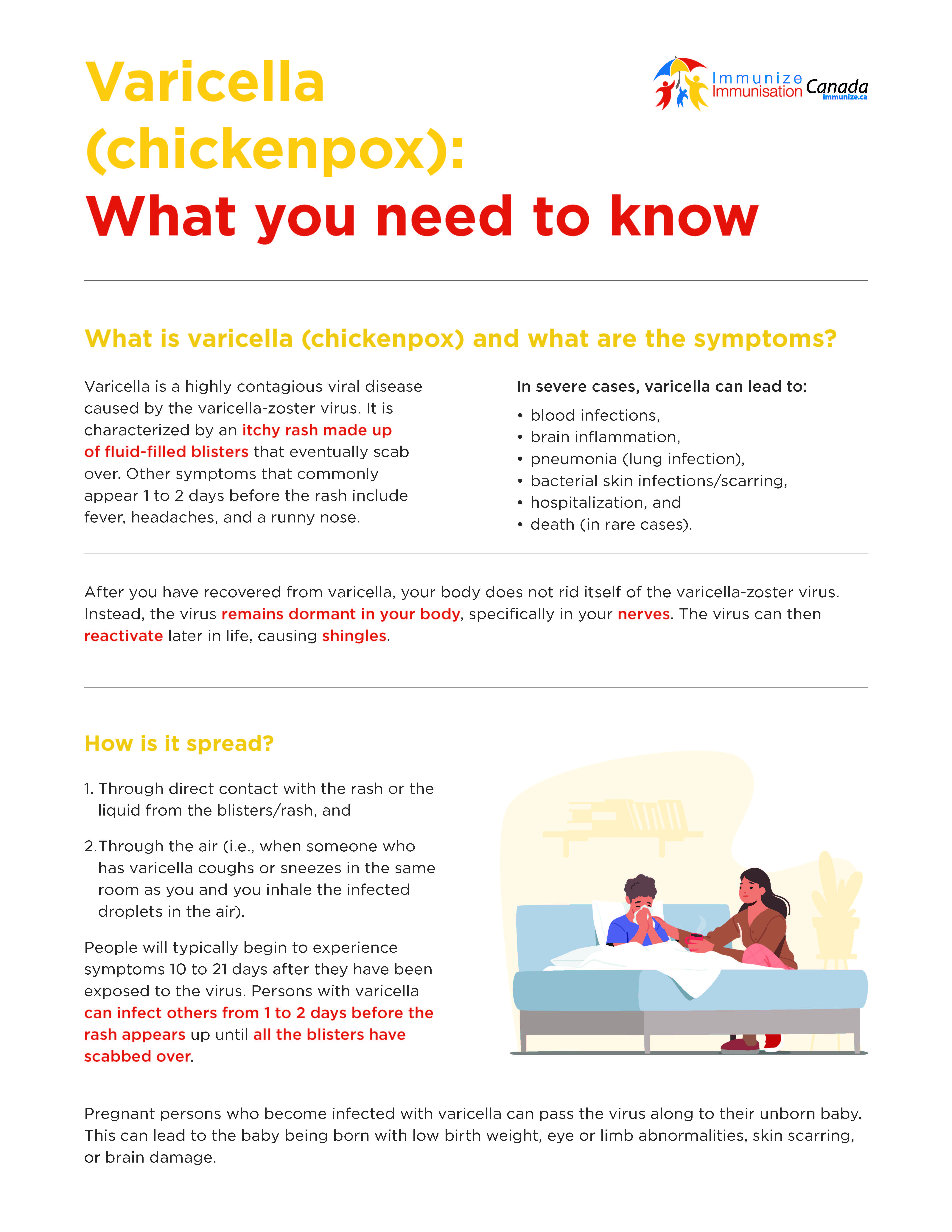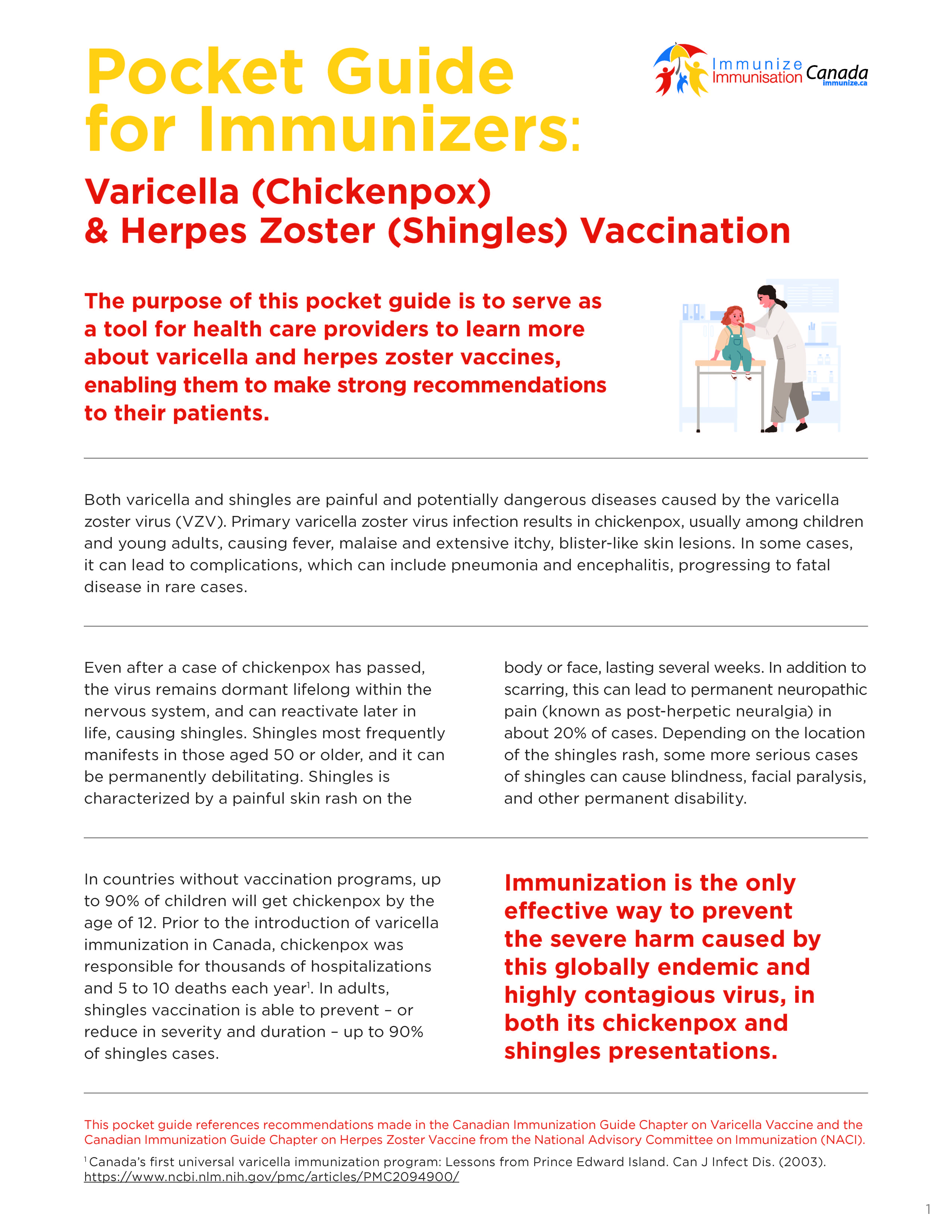Varicella (Chickenpox)
Varicella (chickenpox) is a highly contagious viral disease caused by the varicella-zoster virus. It is characterized by an itchy rash made up of fluid-filled blisters that eventually scab over. Other symptoms that commonly appear 1 to 2 days before the rash include fever, headaches, and a runny nose. In severe cases, varicella can lead to blood infections, brain inflammation, pneumonia (lung infection), bacterial skin infections/scarring, hospitalization, and, in rare cases, death.
After you have recovered from varicella, your body does not rid itself of the varicella-zoster virus. Instead, the virus remains dormant in your body, specifically in your nerves. The virus can then reactivate later in life, causing shingles.
Varicella is spread through direct contact with the rash or the liquid from the blisters/rash, and through the air (i.e., when someone who has varicella coughs or sneezes in the same room as you and you inhale the infected droplets in the air). People will typically begin to experience symptoms 10 to 21 days after they have been exposed to the virus. Persons with varicella can infect others from 1 to 2 days before the rash appears up until all the blisters have scabbed over. Pregnant persons who become infected with varicella can pass the virus along to their unborn baby. This can lead to the baby being born with low birth weight, eye or limb abnormalities, skin scarring, or brain damage.
Check out our resources on varicella (chickenpox) immunization and share with your network!
Campaigns and Awareness Materials

Varicella is most common in children and is typically mild in this age group. However, it is still possible for children to become severely ill due to varicella infection, and the risk for severe infection increases with age. Adolescents and adults are more likely than children to experience severe varicella infection. People at particular risk for developing severe varicella infection include newborns of mothers or birth-givers who develop varicella within the timeframe of 5 days before until 48 hours after giving birth; premature infants born at less than 28 weeks of gestation; pregnant persons who do not have immunity against varicella (lab-confirmed or through immunization); and persons with a weakened immune system (who are immunocompromised).
For the Public
Factsheets
Video
Get the shot against chickenpox
For Healthcare Professionals
Pocket Guide for Immunizers
Pocket Guide for Immunizers: Varicella (Chickenpox) & Herpes Zoster (Shingles) Vaccination
(pocket guide – PDF: 778 KB)
The purpose of this pocket guide is to serve as a tool for health care providers to learn more about varicella and herpes zoster vaccines, enabling them to make strong recommendations to their patients.
This pocket guide references recommendations made in the Canadian Immunization Guide Chapter on Varicella Vaccine and the Canadian Immunization Guide Chapter on Herpes Zoster Vaccine from the National Advisory Committee on Immunization (NACI).
Campaigns and Awareness Materials
There are no campaigns or awareness materials available at this moment



